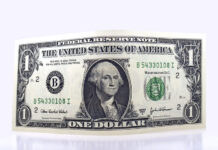The unprecedented events in the past four years have put a lot of people and entrepreneurs into the gutter. Recession, layoffs, and business shutdowns were challenges the US economy endured in 2020.
The economy easily regained footing as policymakers maintained prudent approaches to the economic slowdown. In 2021, the reopening of businesses and the rebound of the employment rate showed a continued rebound.
But not a year later, economic woes started to seep into every household again. The sharp rise of inflation and interest rates threatened millions of Americans’ finances. In 2023, about 40% of Americans reported being financially stressed due to inflation. This number notably increased from 34% last year despite the sustained inflation deceleration and interest rate hike pause.
As we start 2024, outlooks are more optimistic as inflation approaches the Fed’s target band. Yet, many analysts believe that the recession was delayed, not avoided. With that, individuals must monitor their liquidity as recession fears persist. These are some tips to help prevent financial distress amid macroeconomic volatility.
Keep Track of Your Spending
A survey conducted in late 2023 showed that 73% of Americans could still not keep up with inflation even after having a salary increase. Inflation has always been a double-edged sword that can make or break economic growth. The same applies to every household since inflation requires businesses to raise salaries, so production will remain the same or improve.
However, the general price level increase is often faster than one’s salary. As such, it is in the hands of every employee to ensure they have enough.
One effective way is by checking your monthly cash flow. Keep track of your expenses and compare it to your salary. Does your salary cover all your expenses? How much stays with you after paying your monthly bills, groceries, and rent? Amid economic uncertainties, it is essential to live within your means to avoid getting stuck in debt, especially now that inflation and interest rates are still elevated.
If possible, lessen your discretionary spending. These include your spending on clothes, food deliveries, entertainment, and other non-essential products and services. You can start either by reducing the amount or the frequency. That way, you can gradually see how it affects your finances and self-discipline.
Get Side Hustles
Sure, you have already tried every way to limit your spending or reduce electric and water consumption. Yet, nothing has changed. You still can’t increase your savings. Looking for higher-paying jobs can be a good option.
But you should have a backup plan before submitting your resignation. Even if you landed the most coveted job in town, you may have to wait about a month before starting.
Given this, having side hustles will help you pay your monthly dues while waiting for your first paycheck in your new job. Online jobs are all over the internet as many businesses no longer rely on brick-and-mortar stores.
Having more than one part-time or freelance job can be lucrative today. They promise you multiple and consistent sources of income. You can also work at home all day to avoid transportation and takeout expenses.
Establish an Emergency Fund
At this point, we hope you have landed a decent-paying job or found multiple income streams. That way, you can pay your monthly bills and have enough savings. However, your bank savings may need more should inflation rebound in the subsequent months. It is more difficult during emergencies, accidents, and sickness.
As such, you must establish an emergency fund as early as now. This is a portion of your savings solely intended for emergency spending. Suppose you have an income of $5,000 per month. You spend $3,000 on all your monthly bills, including rent and groceries. You spend $1,000 on entertainment, new clothes, and restaurants. The remaining $1,000 goes to your bank savings.
You can start by getting 30% or $300 of your non-discretionary spending and put it in your emergency fund. If possible, you can make it at least 50%. You will have $3,600 or $6,000 within a year in your emergency fund. That is why you must keep track of your monthly expenses to determine which you can reduce to improve your savings.
Get Insurance
The pandemic has been a game-changer for many. It has shown the importance of financial awareness to stay afloat during a crisis. The skyrocketing hospital bills and property prices have depleted the wealth of many Americans. That is why having insurance can turn a stressful situation into an unexpected blessing.
Having health, life, and even property and casualty insurance may add more protection to your finances. It makes sure your savings and emergency funds are left untouched. It is especially essential during accidents because many life and health insurance policies cover it. Accidental death and accident disability are some benefits a policyholder can get from his insurance.
Aside from that, it can help you cover legal fees should someone file a countercharge against you in court. Insurance is also a staple for many businesses, whether the accusations are true or false. Insurance companies and financial advisors can even help you find lawyers to fight for you in court.
Thankfully, many law firms now utilize SEO for personal injury lawyers, making it easier to help you find reliable and established ones online.
Observe macroeconomic changes
Economic awareness is not exclusive to economists and financial analysts. Everyone can have it by having timely updates.
Watching and reading news on reliable channels and websites can help you understand what’s happening in the economy. Even if you are not well-versed in jargon, you will surely learn about it as you become consistent. Doing so will allow you to prepare for possible recessions and shield your savings.
The US economy is still on its way to recovery, but the potential of another economic slowdown should not be disregarded. One should be more aware of local and global events to better prepare for crises.
That way, you can avoid financial distress and not be pushed to the brink of bankruptcy. Also, you can find ways to capitalize on the situation and increase your portfolio. Additionally, you can stay liquid without exhausting your savings.
Disclaimer: This article contains sponsored marketing content. It is intended for promotional purposes and should not be considered as an endorsement or recommendation by our website. Readers are encouraged to conduct their own research and exercise their own judgment before making any decisions based on the information provided in this article.




































































